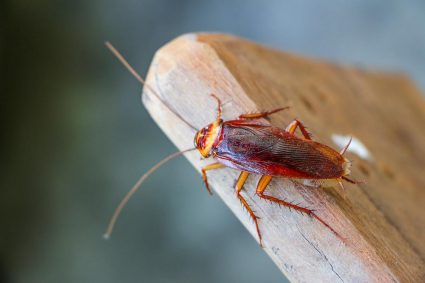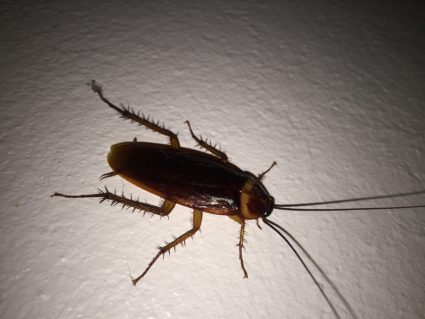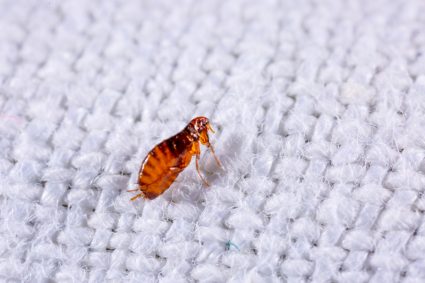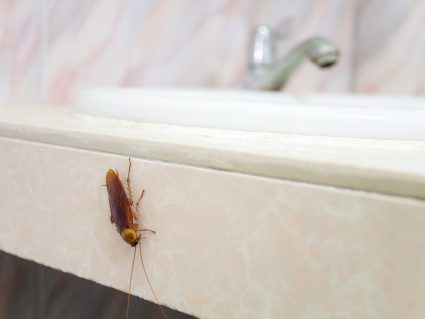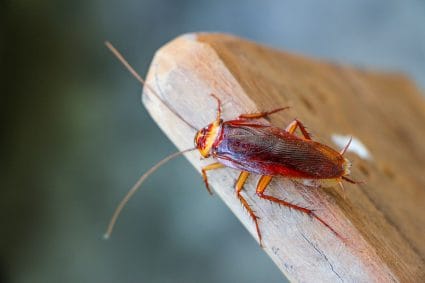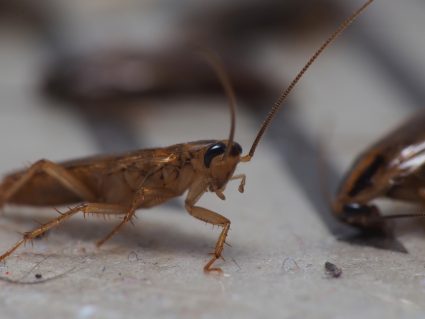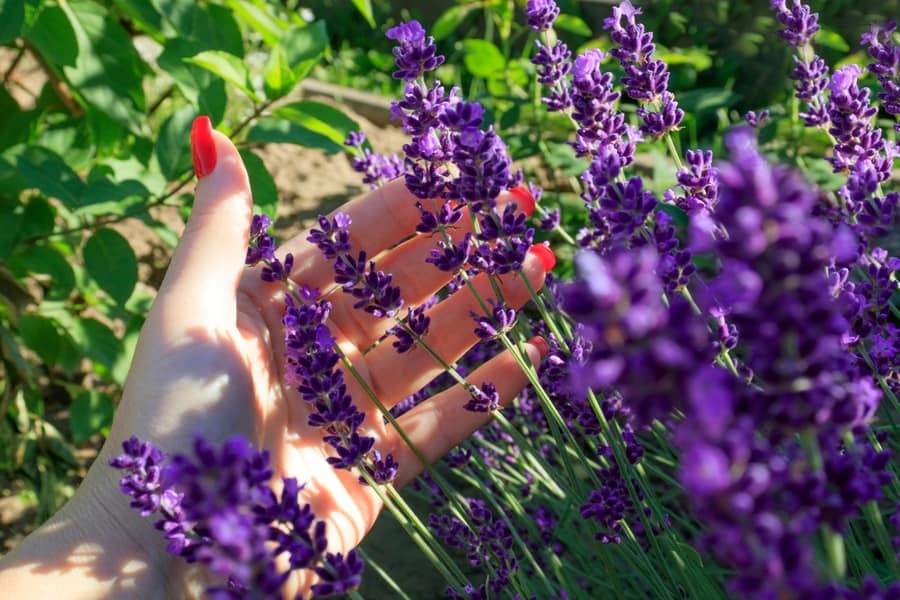
Spider mites are a common problem for gardeners, as these tiny eight-legged creatures can wreak havoc on your plants.
With the right knowledge and strategy, you can keep your plants safe from these pesky pests.
Spider mites can cause a lot of damage to gardens and plants, but there are a few steps you can take to keep them away.
- Make sure to inspect your plants regularly for any signs of mites, such as discolored leaves or webbing.
- Keep your garden clean and free of debris, as this will make it harder for mites to survive and breed.
- Introduce beneficial insects like ladybugs and lacewings, which will feed on spider mites and help to keep their population under control.
- Consider using natural treatments like neem oil or insecticidal soaps to kill mites without harming the plants.
- Some plants can also help, including:
- Lavender
- Mint
- Marigolds
- Garlic
With these tips, you can keep your garden mite-free and protect your plants. If you need it, you can also consult an expert for advice.
This article will cover the basics of what spider mites are, how to identify them, and a comprehensive overview of how to keep them away using natural remedies and plants that repel them.
What Are Spider Mites?
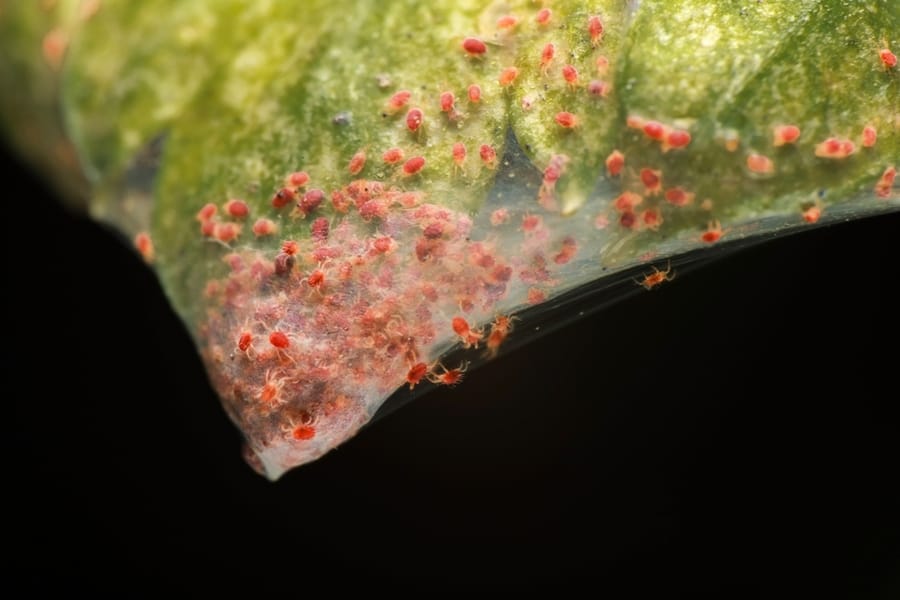
Spider mites are small, eight-legged arachnids that belong to the family Tetranychidae.
They are closely related to spiders, ticks, and scorpions but differ in that they have only two body segments and four pairs of legs.
They are incredibly small, with adults measuring less than 1 mm in length.
They come in various colors, ranging from yellow, orange, and red to green, black, and brown.
Spider mites are active all year round and prefer warm, dry climates.
They feed on plants by piercing the leaves and sucking out their sap. This causes tiny yellow or white spots on the plant’s leaves, eventually leading to wilting and death if left untreated.
How To Identify Spider Mites
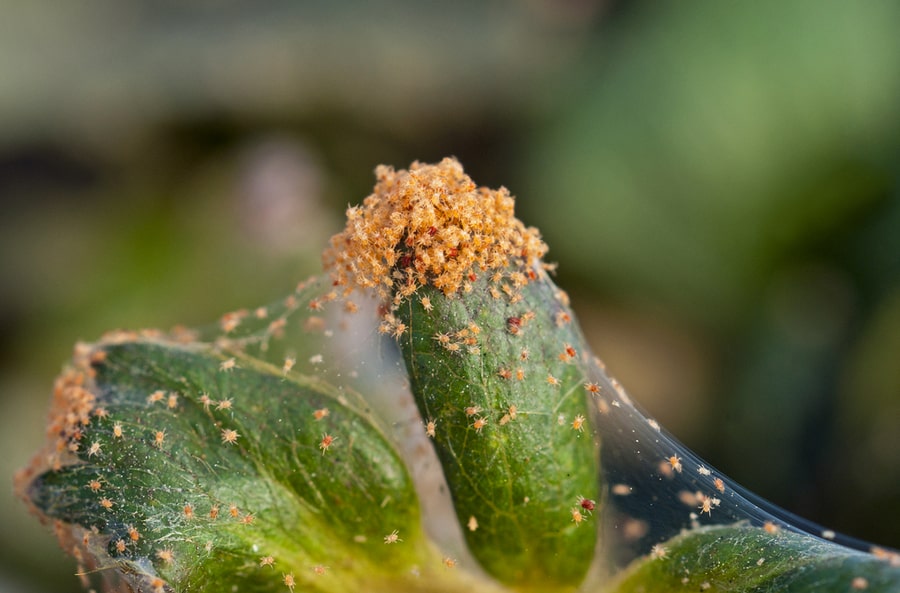
Spider mites can cause various issues for your plants, from yellowing and wilting the leaves to stunted growth and even death.
Spider mites can be difficult to spot due to their tiny size, but there are a few telltale signs that you can look out for. These sighs include:
- Fine webbing on plant leaves
- Tiny yellow or white spots on leaves
Other signs include yellowing and wilting of the leaves, stunted growth, and even death.
The most obvious sign is the presence of fine webbing on the leaves of the plant. This webbing is produced by the female mites and is used to protect their eggs.
You may also notice tiny yellow or white spots on the leaves caused by the mites puncturing the plant’s cells and sucking out the sap.
Another sign of a spider mite infestation is the presence of tiny black or brown spots on the leaves. These spots are the mites’ fecal matter, which is a sure sign that you have an infestation.
How Do Spider Mites Damage Plants
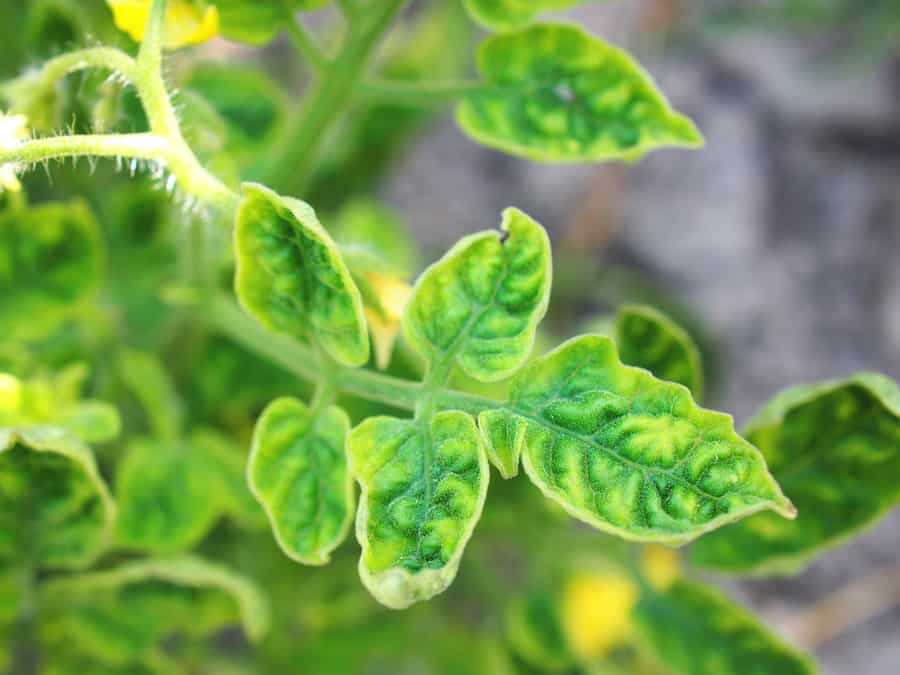
Spider mites feed on the sap of plants, which can cause serious damage to the plant.
They puncture the plant leaves and suck out the sap, causing tiny yellow or white spots to form on the leaves.
This can eventually lead to wilting and death if left untreated, as it causes the leaves to curl, drop, or become distorted.
Spider mites also produce webbing on the undersides of the leaves, which can further inhibit the photosynthesis process.
Also, spider mites can spread rapidly, as the females can lay up to 200 eggs in their lifetime.
How Can Spider Mites Be Controlled

The best way to control spider mites is to identify them early and take action before they cause any damage.
Keep your garden clean and free of debris, as this will make it harder for the mites to survive.
Here are the procedures:
- Start by removing any affected plants, and then follow up with a natural insecticide or miticide.
- Prune away heavily-infested branches, and if possible, use a high-pressure hose to wash off the leaves.
- Avoid using chemical insecticides, as they can harm beneficial insects that help keep spider mite populations in check.
- Finally, encourage natural predators such as predatory mites and ladybugs to help reduce spider mite populations, and you can cultivate spider mites repelling plants.
If you find spider mites, treat them with a natural or chemical insecticide; the better.
Natural Remedies To Get Rid of Spider Mites
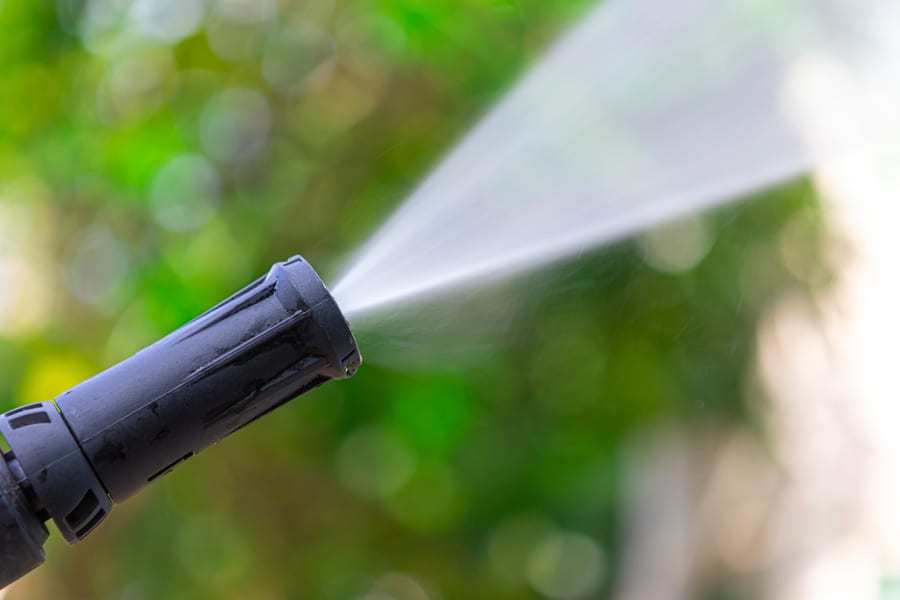
There are a few natural remedies that you can use to get rid of spider mites.
The most effective method is spraying plants with strong streams of water. This will knock mites off plants and make it difficult for them to climb back on. You can also use a solution of water and dish soap to spray plants or even rubbing alcohol.
Another natural remedy is to introduce beneficial insects to the area. Ladybugs, lacewings, and predatory mites are some of the spider mites’ natural predators that can help keep their population under control.
Finally, you can try adding certain plants to your garden because some plants are known to repel spider mites.
Plants That Repel Spider Mites
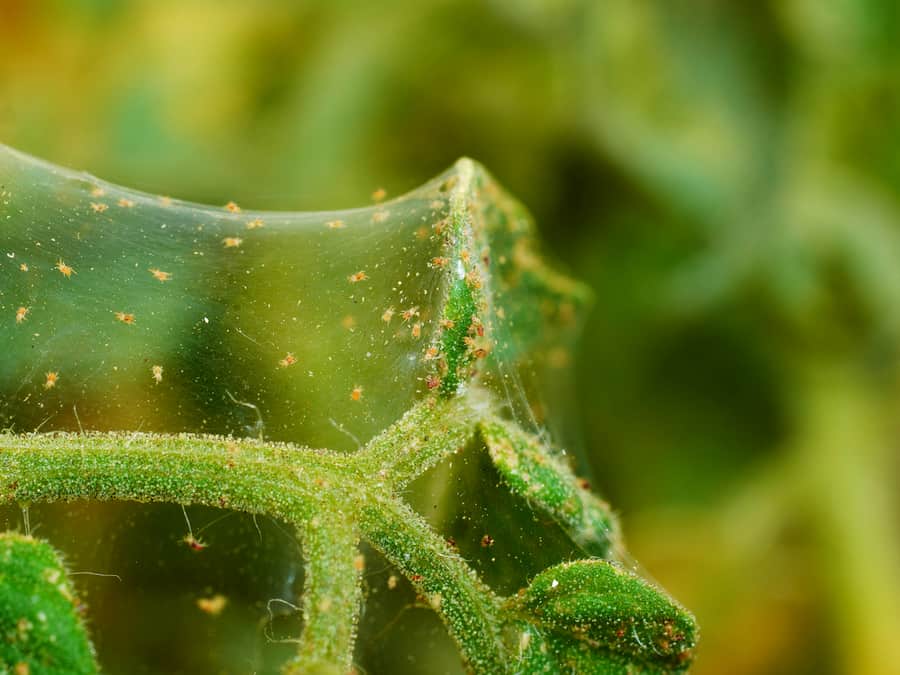
There are a few plants that can help to repel spider mites. These plants produce a strong scent that the mites find unpleasant and will keep them away from your other plants.
Some of the most effective plants for repelling spider mites include lavender, mint, marigolds, and garlic. Planting these around your garden can help to keep the spider mites away.
Let’s take a more in-depth look at some of these plants.
1. Lavender

Certain varieties of lavender, such as Lavandula angustifolia, have been found to repel spider mites. This is due to the fragrant oils that the plant produces, which act as a natural deterrent for the pest.
Lavender is also known for its attractive purple and white flowers, making it a great choice for gardens and landscapes where spider mite control is a priority.
2. Mints and Spearmint Plants
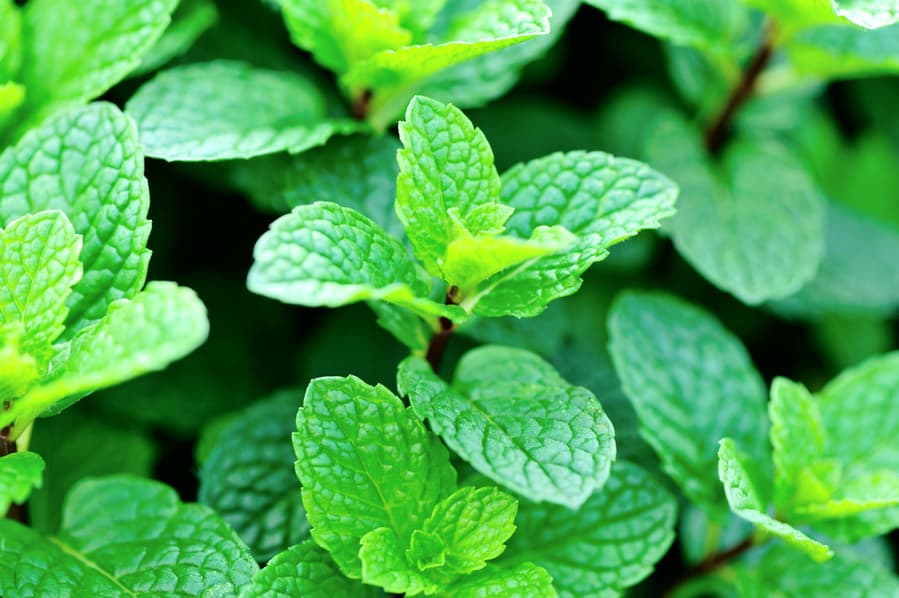
Mint and spearmint plants are known to be effective in repelling spider mites. The strong aroma of these plants repels the mites, making them an ideal option for those looking for a natural way to deter the pest.
Planting mint and spearmint in the garden or containers around the home can help keep spider mites away and make your outdoor areas more enjoyable.
3. Marigolds

Marigolds are an excellent choice for repelling spider mites. The strong odor of the marigold flower is known to repel spider mites and other insects.
Planting marigolds around the edges of gardens and flower beds can help keep spider mites away.
Additionally, marigolds can be cut and placed around windowsills, doorways, and other areas prone to spider mite infestations.
4. Garlic
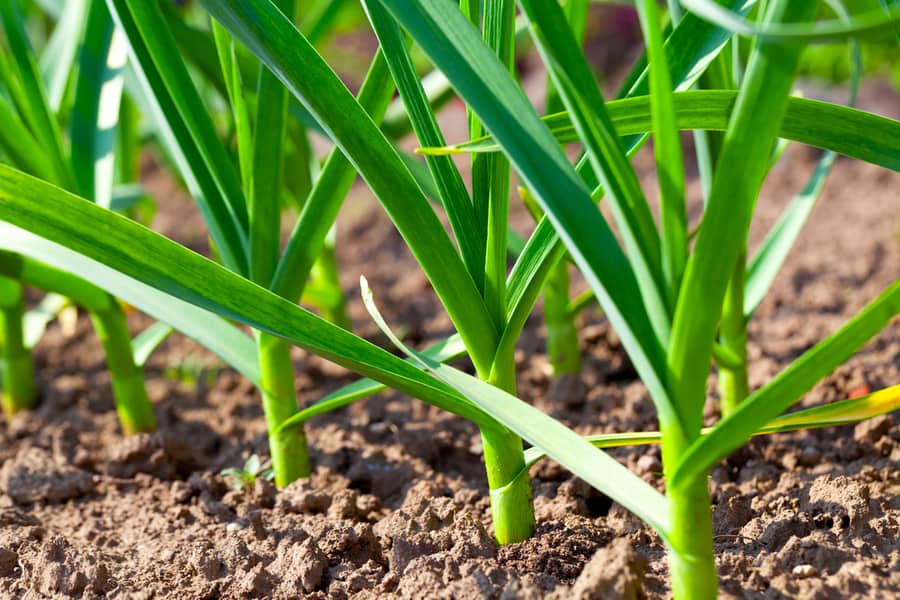
Garlic plants are a powerful natural remedy for spider mites. This plant contains allicin, an organic compound known to repel all kinds of pests, including spider mites.
Additionally, garlic plants emit a strong aroma that further deters spider mites from settling in the area.
To use garlic plants as a repellent, grow them around the perimeter of your garden or in other areas infested with spider mites.
Regularly trimming and pruning the plants will help to keep them healthy and strong, allowing them to continue repelling the pest.
5. Lemon Balm
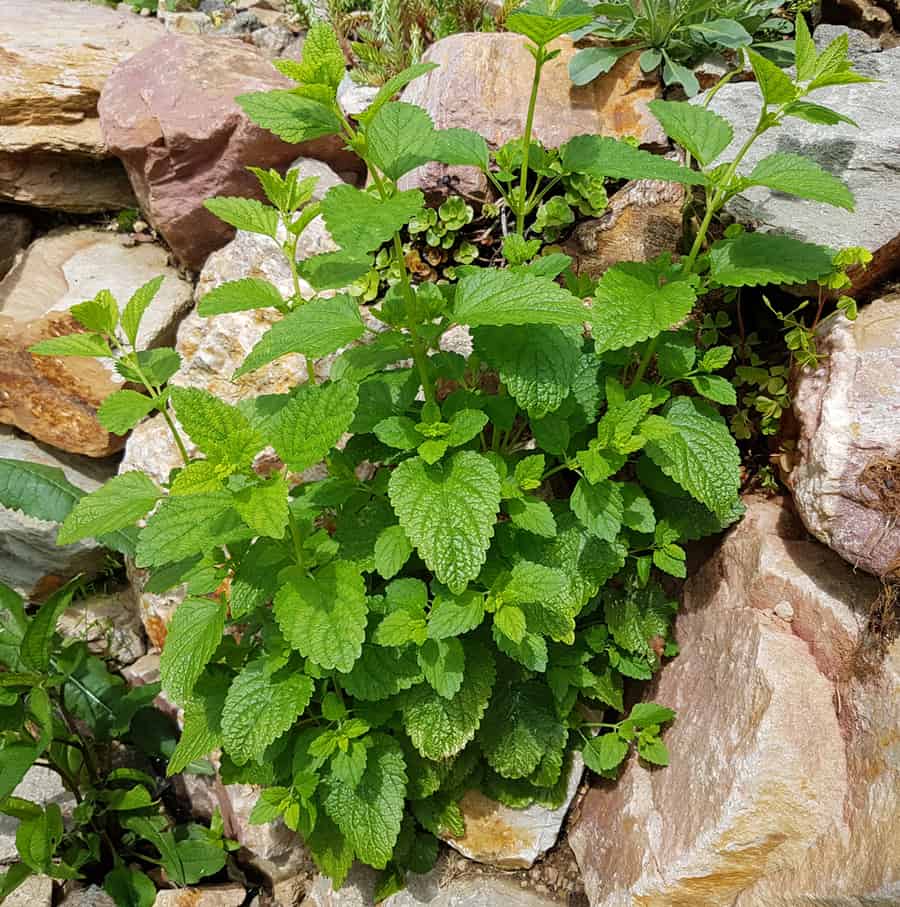
Lemon balm, or Melissa officinalis, is often touted as a natural remedy for spider mite infestations. Studies have shown that the plant’s volatile oils have the potential to repel and even kill spider mites.
While lemon balm may not be enough to keep all spider mites away, it can be a useful addition to an integrated pest management plan.
Additionally, it can provide a safe and natural way to discourage spider mites and reduce their numbers in areas where they are a problem.
6. Chamomile

Chamomile plants can naturally repel spider mites in the home or garden. The scent of the chamomile plant is known to deter spider mites and can be used to protect other plants from infestation.
Planting chamomile near susceptible plants can provide an effective barrier against spider mites.
The essential oils from chamomile plants can also be used to make a natural insecticide spray to further protect plants from spider mites.
Chamomile is a safe and natural way to keep spider mites away from your plants!
7. Sagebrush
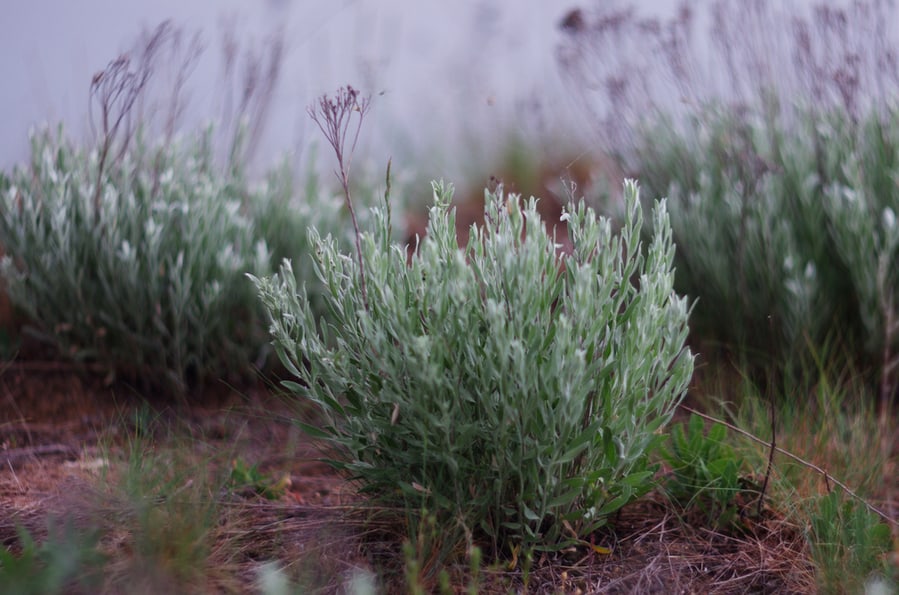
Sagebrush plants (Artemisia tridentata) are popular for their fragrant leaves and low-maintenance nature.
They are also beneficial for pest control, as they can be used to naturally repel spider mites.
A study by the University of California has found that sagebrush plants effectively repel spider mites, possibly due to their volatile oils.
This makes them an ideal choice for gardeners looking for a natural pest control method.
8. Oregano

Oregano is an herb that can be used in various ways, but it also has an unexpected benefit: it can repel spider mites.
Studies have shown that when diluted and applied to plants, oregano oil can be an effective natural deterrent against spider mites.
When used correctly, oregano oil can protect plants from infestation without the need for chemical pesticides or other synthetic treatments.
Note that oregano oil should be handled and applied with caution; it should never come into contact with the eyes or skin.
Furthermore, if you are considering using oregano oil on food-bearing plants, make sure to use a food-grade product.
9. Thyme

Thyme is a great choice for those looking to repel spider mites from their gardens or homes.
Not only does thyme have natural anti-fungal and anti-bacterial properties, but it also has a distinct aroma that spider mites find unpleasant.
The plant can be grown in various climates, and its leaves can create a natural repellent spray to keep spider mites away.
The leaves of thyme plants also make a great addition to any kitchen herb garden so you can enjoy their benefits inside and outside the home.
10. Basil

Basil plants can be an effective natural way to repel spider mites. The strong scent of the basil plant can ward off the pest while also providing a pleasant aroma to your garden.
Basil plants are easy to grow and require little maintenance – making them an ideal choice for those looking for a natural solution to combat spider mites.
Additionally, basil plants have many other benefits, such as adding flavor to food dishes and providing a unique look to flower beds.
With these advantages, basil plants are ideal for keeping your garden free from spider mites.
How To Keep Spider Mites Away

The best way to keep spider mites away is to practice good garden hygiene:
- Make sure to remove any dead or dying plants, as these can serve as breeding grounds for the mites.
- You should keep your garden well-watered, as spider mites prefer dry conditions.
- Finally, inspect your plants regularly and take action if you notice any signs of a spider mite infestation.
Best Remedies for Spider Mites
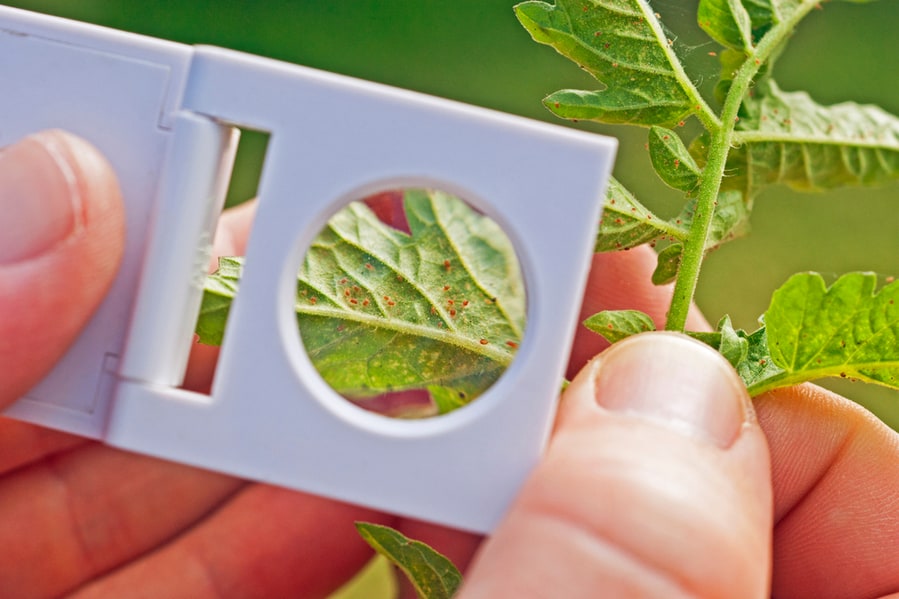
Some of the best remedies for controlling spider mites are as follow:
1. Insecticidal Soap
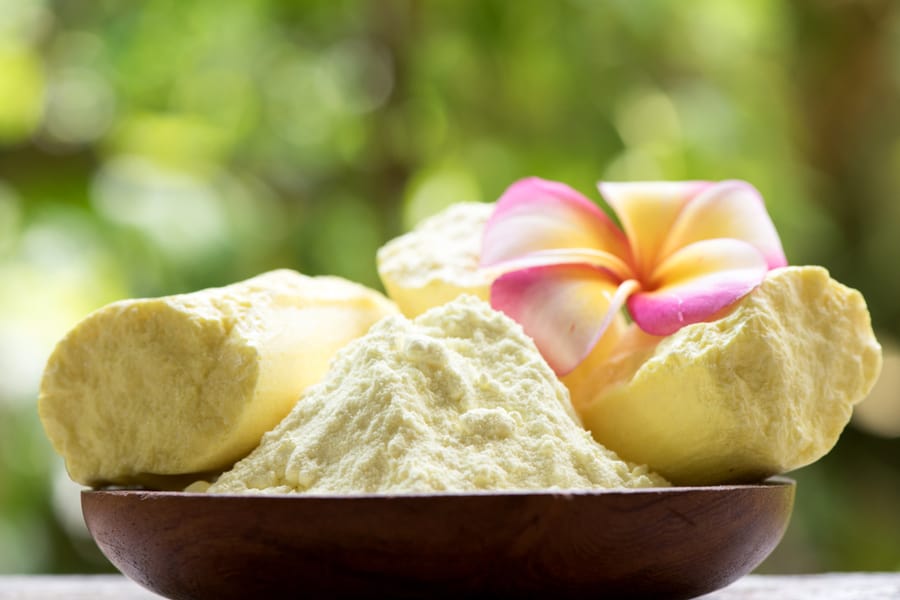
Insecticidal soap can be an effective option for controlling spider mites.
It is a contact pesticide that works against both adults and nymphs and is safe for use in plants.
2. Neem Oil

Another option for controlling spider mites is neem oil.
The oil can be applied to plants or the soil around them and will spider mites.
It is also effective against boults and nymphs and is safe for use in plants.
3. Horticultural Oil
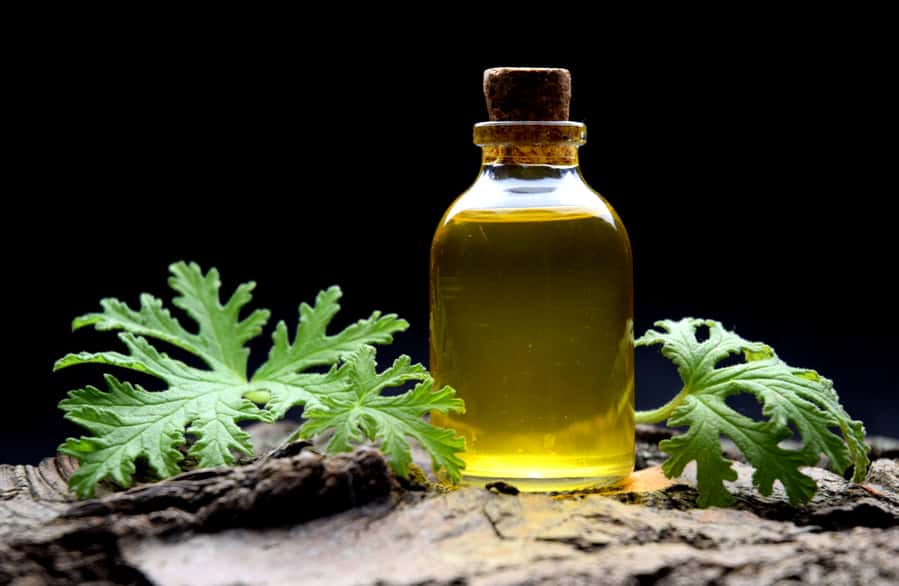
Horticultural oil can also control spider mites, aphids, and other pests.
It is a blend of different oils that can be used as an insecticide, fungicide, or herbicide.
Horticultural oil can be used as a spray or solution.
4. Citrus-Based Sprays
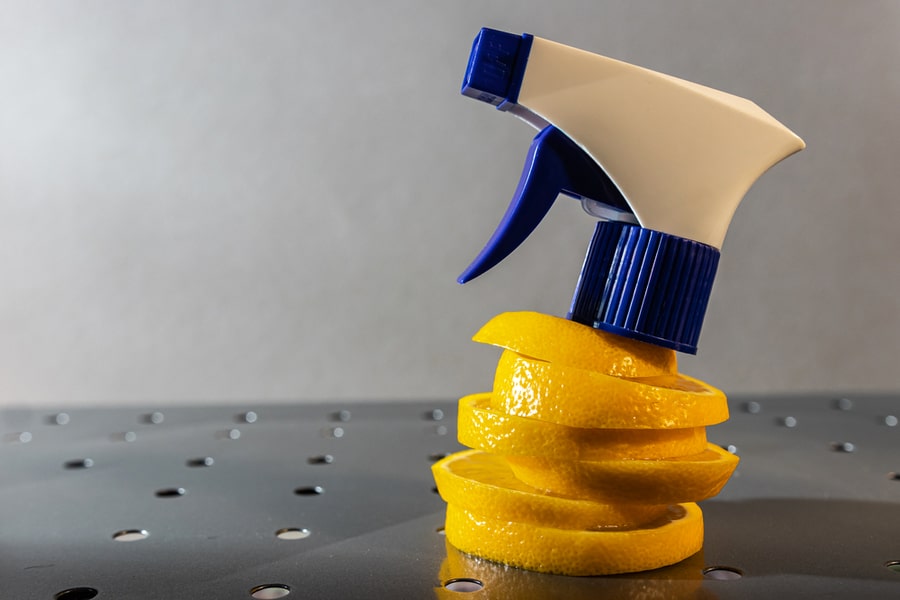
Citrus-based sprays are popular for those looking to repel spider mites from their plants.
These sprays typically contain essential oils from citrus fruit such as lemons, oranges, and limes that are known to be effective against pests.
While citrus-based sprays can be an easy and natural way to keep spider mites away, it is important to be careful when using them, as some plants may be sensitive to the oils.
5. Spinosad Products
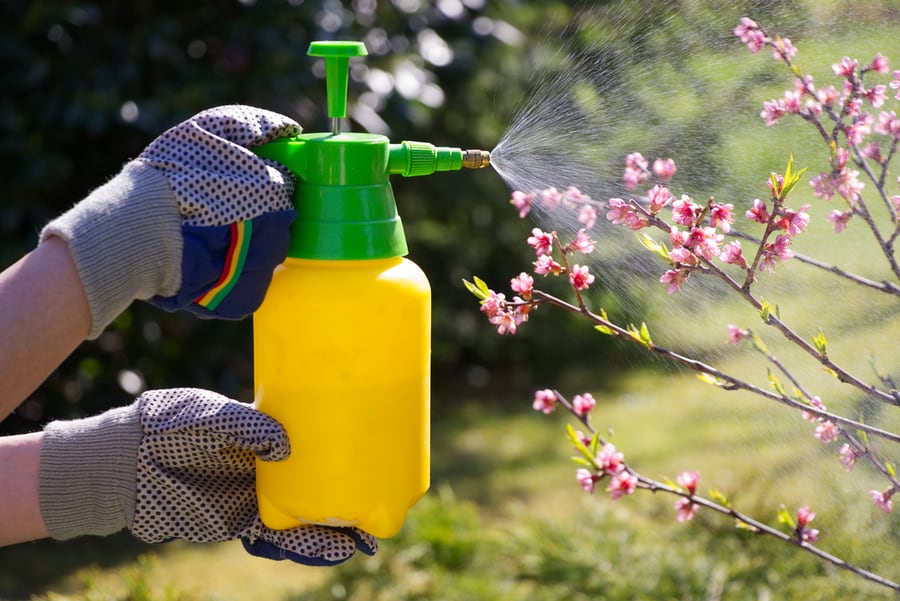
Spinosad products are also a popular choice for controlling spider mites.
These products are composed of a mix of organic and inorganic ingredients, including insecticides, that work to kill spider mites.
While they may be more expensive, spinosad products can effectively control spider mites and other pests.
6. Pyrethrin Products

Pyrethrin products are another popular choice for controlling spider mites.
These products are composed of a mix of pyrethrins and other chemicals that work to kill spider mites.
Pyrethrin products are available in both aerosol and dust forms.
7. Diatomaceous Earth
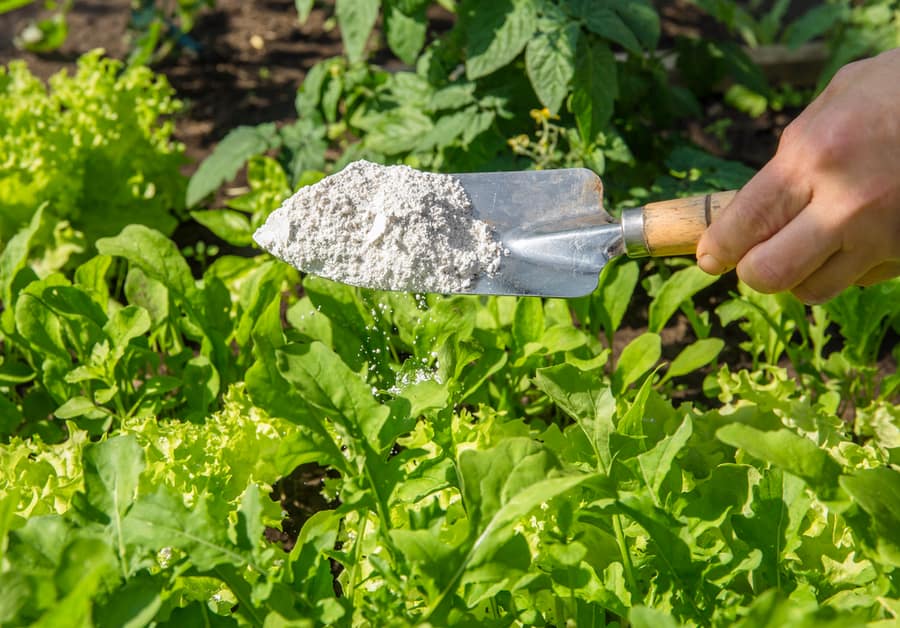
Diatomaceous earth is a natural substance made from the shells of microscopic animals called diatoms.
Diatomaceous earth can be applied to plants as dust and effectively controls spider mites.
It is also safe for most plants and can be combined with other pesticides to make a more effective solution.
Home Remedies for Spider Mites
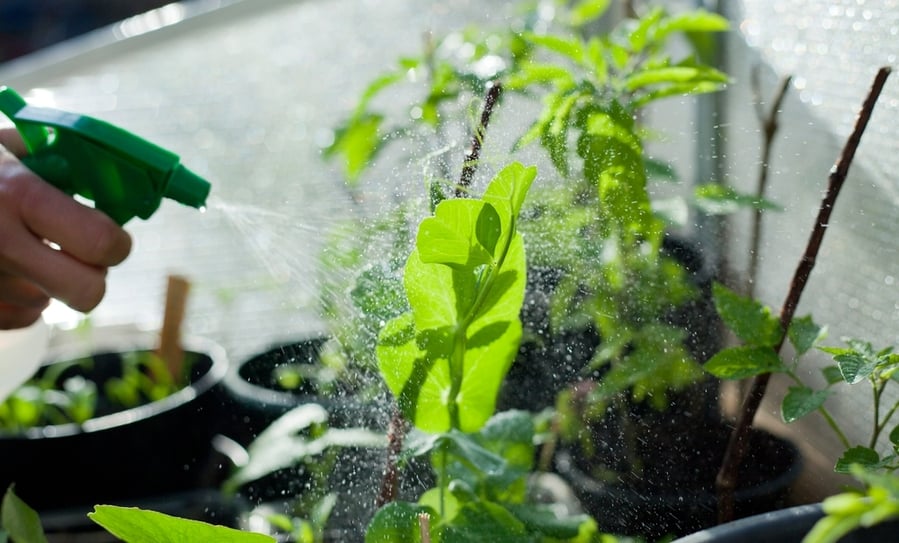
There are a few home remedies that you can use to get rid of spider mites.
- Introduce predatory mites such as Phytoseiulus persimilis or Neoseiulus californicus to eat the spider mites.
- Wash the plant’s leaves with a strong stream of water.
- Prune off any heavily infested leaves and dispose of them in sealed bags.
- Spray your plants with insecticidal soap or neem oil to kill the existing mites and eggs.
- Dust your plants with diatomaceous earth, a natural pest control that kills spider mites on contact.
- Make a homemade garlic spray by blending garlic cloves and water, strain it and add a few drops of dish soap. Spray this generously on affected plants.
- Look for a natural spider mite repellent such as pyrethrum or oils of lemon, cinnamon, or cedar. Apply this to the plants in early spring before the spider mites become a problem.
Conclusion
Spider mites are a common problem for gardeners, but with the right knowledge and strategy, you can keep your plants safe from these pesky pests.
The best way to keep spider mites away is to practice good garden hygiene and inspect your plants regularly.
Additionally, there are a few natural remedies that you can use to get rid of spider mites, such as spraying the plants with a strong stream of water or introducing beneficial insects to the area.
Finally, planting certain plants around your garden can help to repel the mites. With the right knowledge and strategy, you can keep your plants safe from these pesky pests.
Frequently Asked Questions
What Are the Three Natural Enemies of Spider Mites?
The three natural enemies of spider mites are:
- Ladybugs
- Lacewings
- Predatory mites
These natural predators can help to reduce spider mites.
What Keeps Spider Mites Away?
Spider mites can be kept away by reducing their food sources, such as keeping plants well-watered and removing any dead or dying foliage.
It is also important to keep the area around the plants free of debris, as this can provide a breeding ground for spider mites.
Additionally, introducing the natural predators we talked about can help to keep the population of spider mites under control.
Peppermint or rosemary extract, in a misting spray composition, could also be the ideal solution (source). These scents are repugnant to arachnids and can provide a barrier against infestation.
What Plants Can I Plant Around My Garden To Repel Spider Mites?
There are a few plants that can help to repel spider mites, including:
- Marigolds
- Chrysanthemums
- Lavender
Planting these around your garden can help to keep the mite population under control.
What Is the Best Predator for Spider Mites?
The two most commonly used predators for spider mites are:
- Predatory mites (Phytoseiulus persimilis and Neoseiulus californicus)
- Predatory beetle (Stethorus punctillum)
Both predators feed on spider mites and can provide effective control when used properly.
Should I Throw Away Plants With Spider Mites?
Yes, it would be best if you threw away any plants with spider mites.
Throwing away the plant is one solution that may help reduce the spread of spider mites, but you should not also forget the other preventative measures to help repel the pests.
As discussed in the article, some plants that act as natural repellents for spider mites include garlic, marigolds, and chrysanthemums.
You should also regularly inspect your plants for signs of mites and take extra precautions if you notice any.


